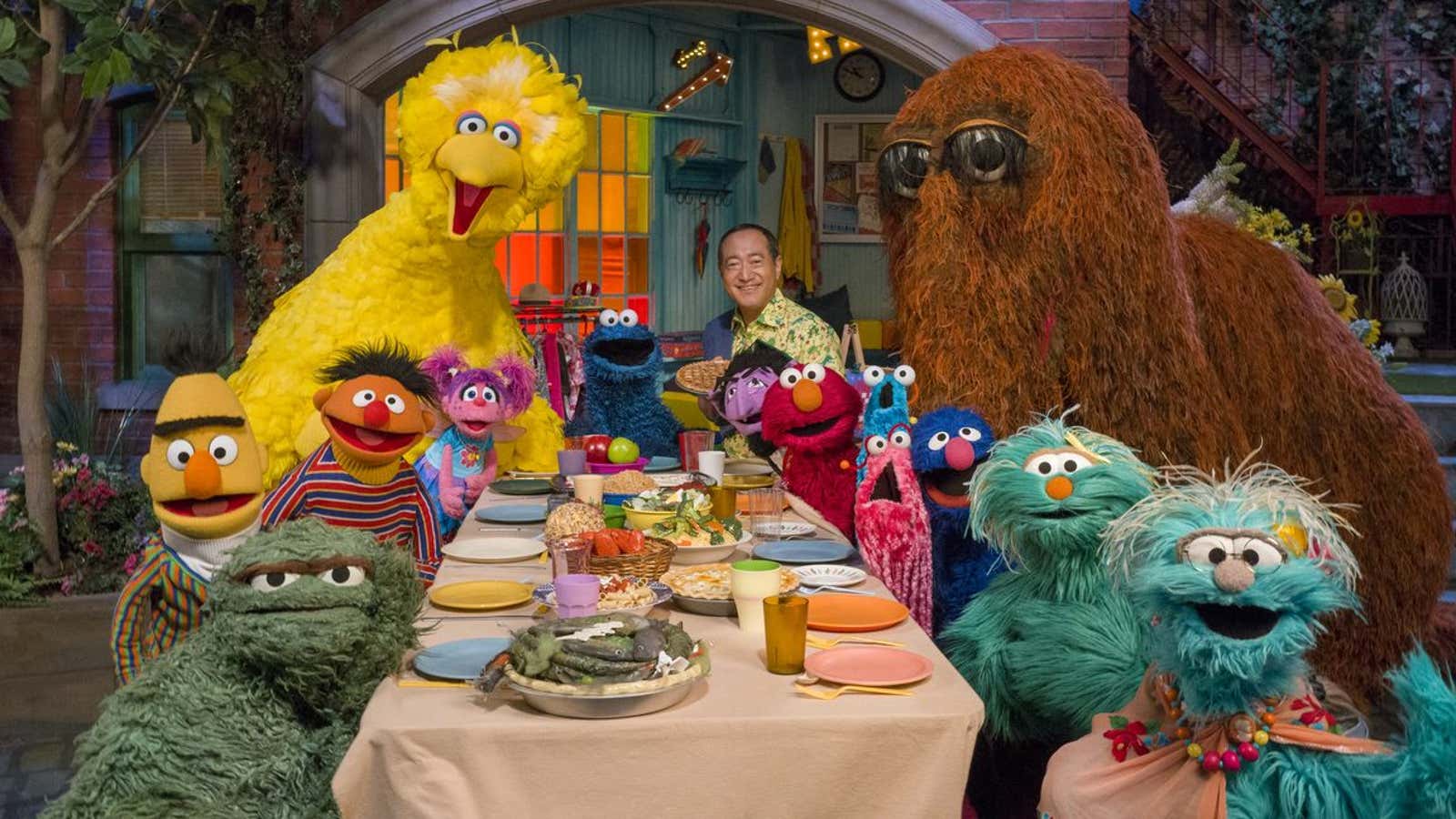What do Silicon Valley and Sesame Street have in common? They’re both starting to take action against the harmful impact of kids and parents not being able to put down their phones.
In San Francisco yesterday (April 23), the nonprofit Center for Humane Technology gathered a group of 300 tech and philanthropy leaders to urge them to work on limiting the impact of technology on human beings. The group’s founders, former Google and Mozilla employees Tristan Harris and Aza Raskin, argued that the design choices of tech giants have contributed to shortening our attention spans, damaging our relationships, impeding our children’s development and mental health, and weakening norms of civility and democracy.
The cast of Sesame Street is on the same page. Sesame Workshop, the nonprofit educational organization behind the show, partnered with nonprofit Common Sense Media (CSM) to produce a series of public service videos encouraging families to have tech-free dinners as part of CSM’s #DeviceFreeDinner campaign. In the videos, beloved characters like Elmo, Big Bird, and Oscar the Grouch are seen putting away their pagers, beepers, phones, and iPads, before sitting down to eat.
The videos will run throughout the year in both English and Spanish on more than a dozen networks, including NBC, Fox, Univision, and Xfinity Latino.
Kids today spend an increasing amount of time staring at screens. And while research on the specific effects of screen time on kids’ brain is not yet conclusive (paywall), enough is known about their potential negative effects for experts to recommend that screen time be limited to less than two hours a day. One study of more than 40,000 two to 17-year olds in the US found that more than an hour of daily screen time was “associated with lower psychological well-being, including less curiosity, lower self-control, more distractibility, more difficulty making friends, less emotional stability, being more difficult to care for, and inability to finish tasks.”
But perhaps the most solid argument against excessive screen time is that any hour spent glued to a screen is an hour taken away from other potentially more enriching activities—like playing, sleeping, or spending time being creative and connecting with others. Screens can also get in the way of the quality interactions with parents that are so vital to kids’ development.
CSM chose to focus its campaign on meal-time because research shows that regular family dinners are linked with several health benefits, including better vocabulary skills for young children, healthy eating practices, and improved teenager mental health. And yet, in a poll of close to 900 US families with kids, the group found that 47% of parents said they or a family member used a mobile device at dinner in the last week. “Kids and adults alike feel addicted to their devices, and our need to constantly check them undermines family connections,” James P. Steyer, founder and CEO of Common Sense said in a statement. “Family interaction, including eating meals together, is critical for children’s social and intellectual development.”
There’s momentum behind this initiative. Researchers from the University of British Columbia found that people who go to dinner with their smartphones report feeling more distracted and bored, and enjoy their in-person social interactions less, than those who eat device-free. And England’s chief medical officer recently recommended banning mobile phones from the dinner table as part of a “healthy approach” to device use. The addition of Big Bird and his friends might just get kids on board.
